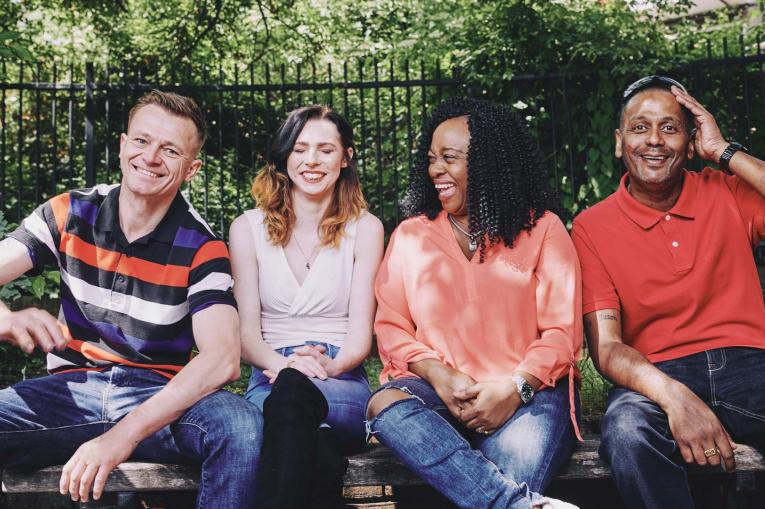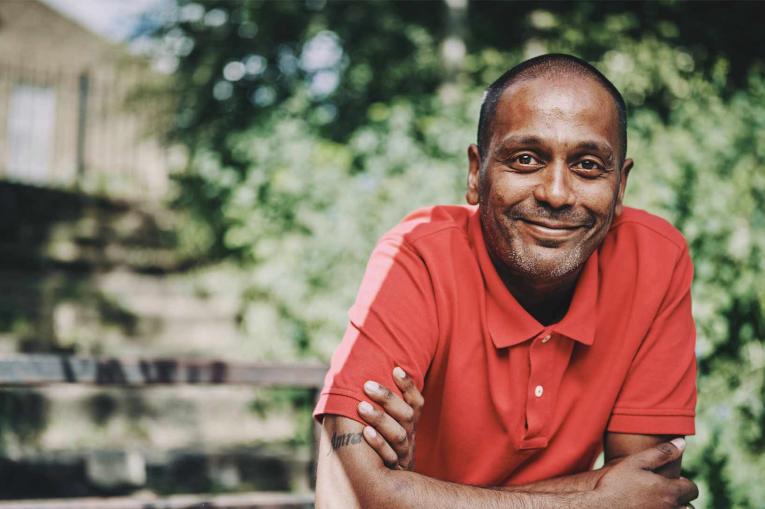
Our new Alcohol Awareness toolkit supports people to talk about their recovery journeys. The toolkit also provides advice for friends and family to help their loved ones through treatment.
This year's Alcohol Awareness Week runs from 15-21 November and gives us an opportunity to share useful tips with people who use our service and with the wider public. This year’s theme is Alcohol and Relationships, which focuses on ideas of loneliness, socialising and drinking during the pandemic.
Our toolkit contains guidance on:
- How to talk to family and friends about your alcohol treatment
- How family and friends can support you and others
- Case studies and advice from people in recovery
- Signposting and motivation
When you enter alcohol treatment with us:
- You will speak to our telephone triage team and be invited into your local hub for an assessment.
- You will meet a nurse to do a basic health check, take your blood pressure and discuss your options around your treatment.
- You may be prescribed medication depending on your agreed treatment plan.
- A Recovery Coordinator will be assigned to support you with goal setting, book you on to groups, and signpost you to activities outside of the service. They will complete risk assessments, talk to any support networks you are working with, and provide harm reduction advice.
- You may be offered an ambulatory or residential detox, depending on your treatment plan.
If you are entering or already in treatment with us

Conversation starters
"Do you have some time to talk? I have something I would like to share with you."
"I want to get support for my drinking, and I need your help finding the right support."
"I struggle to talk about this face-to-face, that is why I am texting you today…"
"I am getting support for my drinking, and I am working with a professional to reduce my drinking habits."
"I want your support on my journey, and there are family and friends’ sessions you can go to."
Guidance for friends and family member of someone experiencing alcohol treatment

Frequently asked questions
Why can’t someone just stop drinking as soon as they enter Change Grow Live?
If someone stops drinking suddenly, they will get withdrawal symptoms such as sweats, shakes and sickness. They will also be at risk of having a seizure because their body can’t cope with reducing too quickly; in extreme cases this can lead to death. Therefore, a reduction plan is needed to gradually limit someone's alcohol use.
What is a reduction plan?
A reduction plan refers to a gradual reduction in the amount of alcohol used by a client – usually 10% less at a time. This needs to take place over an agreed period between the person using the service and our medical team.
What is the role of a Recovery Coordinator in my journey?
Your Recovery Coordinator will:
- Refer you to the clinical team for assessments and harm minimisation advice.
- Refer you to therapeutic groups, aftercare groups and/or mutual aid groups.
- Support you to increase your ‘recovery capital to promote independence from support services after you’ve completed your journey with us.
- Support you to exit treatment alcohol-free, or with reduced alcohol use.
What support is there for family and friends caring for someone struggling with alcohol?
It can be especially hard if you are living with someone who is struggling and causing distress to themselves and others. It is ok to get support from a professional organisation. The organisation will help you to work out how you can best support your loved one, and - just as importantly - help you spend time taking care of yourself and your needs.
Words or phrases you might hear whilst in alcohol support
- Alcohol dependence: When someone needs to consume alcohol regularly.
- Abstinence: When someone is alcohol-free.
- Reduction plan or Drink down plan: See FAQs, above.
- Alcohol detox: We have the option of residential and ambulatory detox.
- Recovery plan: A short list of actions that you will try and complete over a few weeks.
- Recovery capital: A network of support and skills that can help you become more independent.
- Psychosocial interventions: Therapeutic work to help understand your addiction and find strategies to help cope with different feelings.
- Recovery support: Referral to groups/aftercare, liaising with family members, GPs, mental health services, probation officers and social services, as well as regular check-ins with clients.
Phil's story
Phil accessed our alcohol services after concerns about his drinking from family and friends. Click here to read his story.
Further advice and support
- Read our advice for cutting down or quitting drinking alcohol
- Refer yourself for support in Birmingham
- Call us: 0121 227 5890
- Email: [email protected]
Our staff and volunteers have created this toolkit. Please consult your Recovery Coordinator or GP on how to stay safe when accessing alcohol services.
Thank you to all our staff and volunteers for contributing to this toolkit.
Go back to the Birmingham news and events page
